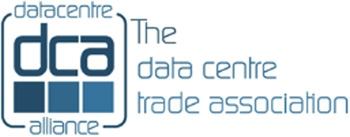Research > Dew Cool
Low Energy Dew Point Cooling for Computing Data Centres
Project Overview
The overall aim of this RISE programme is to form an international and inter-sector network of organisations working on a joint research and innovation programme dedicated to develop the design theory, computerised tool and technology prototypes for a novel CDC dew point cooling system. Such a system, comprising a few critical and highly innovative components (i.e., dew point air cooler, adsorbent sorption/desorption cycle, micro-channels-loop-heat-pipe (MCLHP) based CDC heat recovery system, paraffin/expanded-graphite based heat storage/exchanger, and internet-based intelligent monitoring and control system), is expected to achieve 60% to 90% of electrical energy saving and have a comparable initial price to traditional CDC air conditioning systems, thus removing the above outstanding problems remaining with existing CDC cooling systems.
Within the programme, the participants will exchange skills and knowledge that will allow them to progress towards the key target set for the CDC dew point cooling system, and strengthen collaborative research among different countries and sectors.
The advances in the novel CDC dew point cooling system will have potential market opportunities for non-academic participants in the programme, and have significant benefits to European society and economy.
The staff members who participate in the programme will develop new skills, be exposed to new research environments and have their career perspectives widened. To achieve the expected target (aim) of the programme, the applicants set out the following specific technical objectives:
1. To develop the CDC dew point cooling system design framework and database.
2. To develop, optimise and characterise a prototyping CDC dew point air cooler based on the partners’ established achievement, which is the major part of the CDC cooling system and has potential to achieve 70% to 90% saving in electrical energy consumption compared to the same-rating mechanical vapour compression cooling system.
3. To develop, optimise and characterise a novel solar and (or) CDC-waste-heat driven sorption/desorption prototyping cycle based on the partners’ established achievements, which is an air pre-treatment device in a CDC cooling system and has the potential to save more than 90% thermal energy compared to conventional adsorbent air dehumidification systems.
4. To develop, optimise and characterise an unique micro-channels-loop-heat-pipe (MCLHP) based CDC waste heat recovery prototyping system, which can collect waste heat from the CDC’s data processing equipment in an passive way and use the heat in air pre-treatment of the CDC dew point cooling system.
5. To develop, optimise and characterise a paraffin/expanded-graphite based heat storage/exchanger prototype, which can create a balance between the energy demand of the cooling system and energy supply of the waste heat recovery system.
6. To develop, optimise and characterise an internet-based intelligent monitoring and control prototyping system appropriate to CDC cooling systems.
7. To develop the design theory and computerised tool for CDC dew point cooling systems based on the above outcomes.
8. To carry out case studies for the four selected CDCs, involving design of the dew point cooling systems and analysis of the systems’ energy performance.
9. To carry out dissemination, exploitation and communication activities, which are dedicated to publicise the research results of the programme, enhance its impact in Europe, China, and worldwide, and explore the route towards the market for the innovative and energy efficient CDC cooling technologies.
10. To carry out project management and staff-exchange coordination activities.
The major technological results are the design theory and computerised tool dedicate tailored for the CDC dew point cooling system and associated technology prototypes, which will enable the (1) increased use of natural/renewable (e.g. water, solar) energy in CDC cooling; (2) effective recovery of the CDC waste heat for cooling use; and (3) application of the dedicated theory and computerised tool in CDC cooling design. The achievement will create an opportunity to remove the energy intensive problems exhibited by current CDC cooling systems, thus contributing important added values to the ‘European Code of Conduct for Data Centres Energy Efficiency’.
From the RISE (Research and Innovation Staff Exchange) point of view, the applicants set out the following specific objectives:
A) To develop the CDCs cooling oriented partnership in the form of joint research and innovation activities among the participants, within and beyond the project duration.
B) To promote international (EU-to-China) and inter-sector (Cooling-to-CDCs) collaboration through the staff exchanges.
C) To share knowledge and ideas from research to market (and vice-versa) for the advancement of CDCs cooling technology innovation.
D) To foster a shared culture of the CDC cooling related research and innovation that welcomes and rewards creativity and entrepreneurship and helps to turn creative ideas into innovative products, design theories and tools.
E) To build a new network for international and inter-sector cooperation, and strengthen interaction among the CDC and cooling focused organisations and between the academic and non-academic sectors, across Europe and China.
F) To enhance the impact of the programme at global level, by gathering together the researchers, manufacturers, designers, policy makers and general public, via the planned communication and dissemination activities.
Upcoming Events
- MAR012025
DCA 2025 Data Centre Event Calendar
By Steve HoneThis is a helpful guide to all the Data Centre focused events, which we are aware off, throughout 2025 so you can pencil them in the diary. - APR232025
DCA 10x10 Data Centre Updates Briefing & Networking Event
By Steve HoneDCA 10X10 DATA CENTRE UPDATE & NETWORKING EVENT NEXT EVENT: Wednesday 23rd April 2025 Location: St Pauls Cathedral, London, - The Wren Suite, North West Entrance. The 10X10 Update and Networking Events provide senior data... - MAY152025
Communico Networking
By Steve HoneCommunico Networking – the industry collaboration point for Data Centre, Cloud and Telecoms. - JUL302025
DCA 10x10 Data Centre Updates Briefing & Networking Event
By Steve HoneDCA 10X10 DATA CENTRE UPDATE & NETWORKING EVENT NEXT EVENT: Wednesday 30 July 2025 The Wren Suite, North West Entrance, St Pauls Cathedral, London. The 10X10 Update and Networking Events provide senior data centre and infrastructure... - SEP112025
Communico Networking
By Steve HoneCommunico Networking – the industry collaboration point for Data Centre, Cloud and Telecoms.


